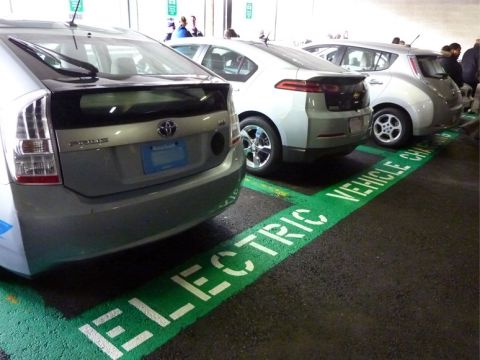Covid-19 pandemic likely to delay penetration of electric vehicles in India: Ind-Ra
Low affordability and the government's priority to revive existing conventional automobile industry following the Covid-19 pandemic will likely delay the penetration of electric vehicles (EVs) in India, India Ratings & Research (Ind-Ra) warned.
The corona-virus health crisis impacted the affordability of new technologies and forced the government to re-shift its focus on reviving struggling conventional automobile industry. Ind-Ra warned that shifting the focus away from EVs will likely delay the pace of growth of the EV industry.
The e-mobility industry’s passenger vehicles (PVs) segment is expected to face more problems as consumers would once again prefer internal combustion engine (ICE) vehicle to costlier EVs, while original equipment manufacturers (OEMs) would avoid incurring high capital expenditure (Capex).
In its latest report, Ind-Ra said, "Low affordability and the government's priorities on reviving the otherwise suffering auto industry could shift the focus away from EVs in the interim. Amid the current slowdown, OEMs are unlikely to incur aggressive Capex over the electric platform.”
The pandemic-caused decreased affordability and lower economic activities could lead to a decline in EV sales of more than 20 per cent year-on-year for the second year in a row in FY21.
The slowdown is most likely to particularly impact the sales of electric cars that are costlier than ICE vehicles. Commercial vehicles like three-wheelers and buses, which enjoyed higher electrification rates last year, are among the most affected segments in FY21. Thus, this segment will likely see a delay in electrification. The segment of two-wheelers, which is enjoying greater rural demand and shift to personal mobility, is expected to suffer the least impact. In the two-wheeler segment, scooters are expected to see an upside because of lower pricing delta between an EV and ICE. Availability of models from various scooter brands is also attracting consumers.
Stressing that government measures continue to play a crucial role, Ind-Ra pointed out that the Indian government has set aside Rs, 10,000 crore outlay for FY20 to FY22 for faster EV adoption under the FAME-II policy, with subsidies at a specific vehicle price. For instance, subsidy for an e-PV has been capped at Rs 15 lakh, which limits the scope of EVs in the premium car segment. When it comes to e-two-wheeler segment, the government’s FAME-II scheme has a tougher requirement for speed and range. Moreover, the incentives are capped at 20 per cent of the EV cost, while China and many European countries capped incentives at 30-50 per cent in the initial years of their EV industry growth.
